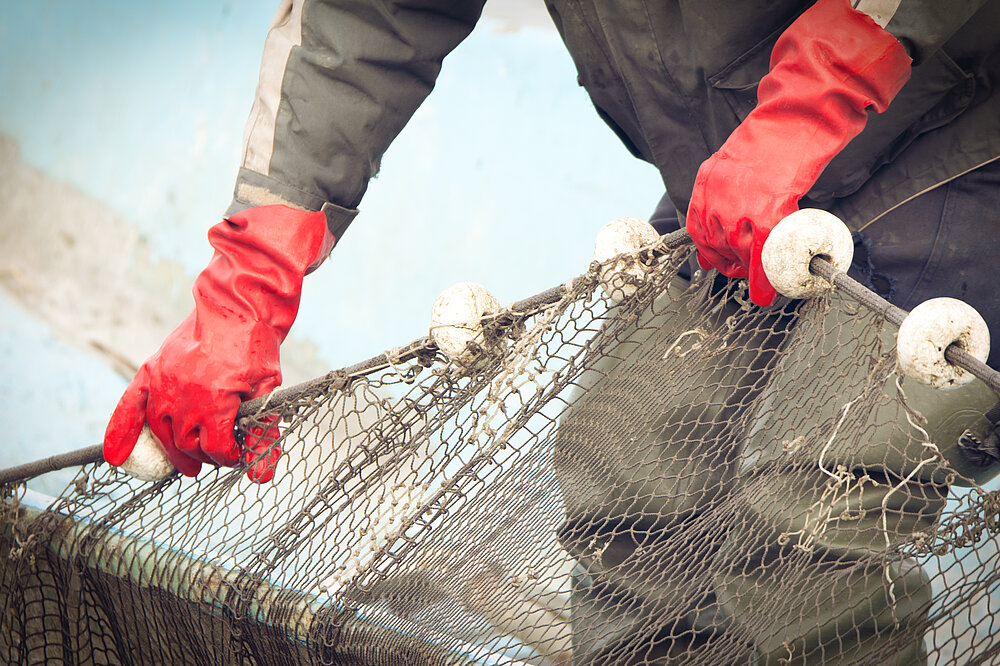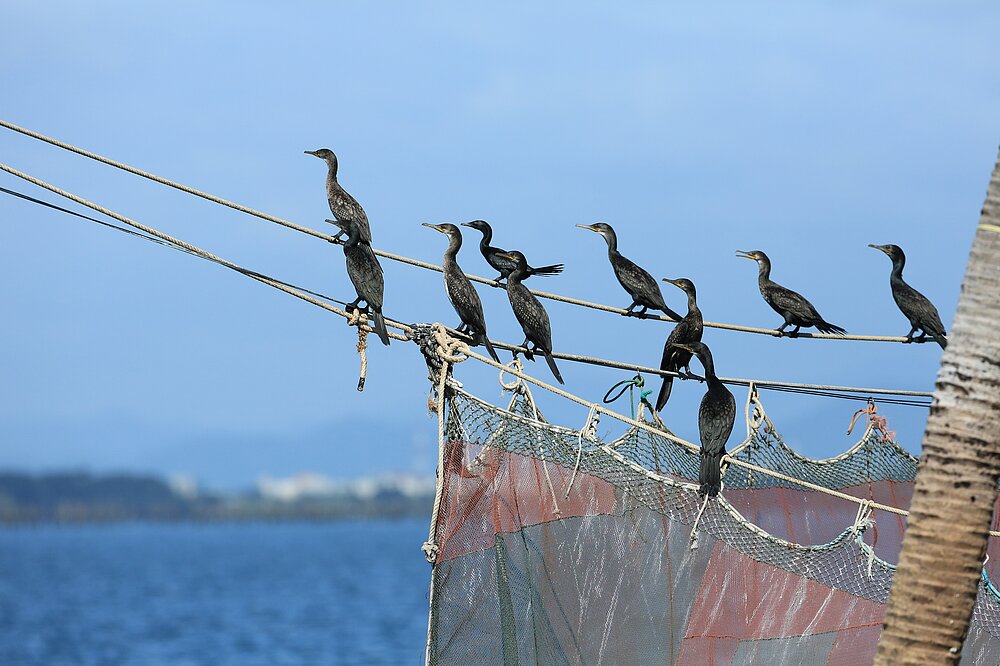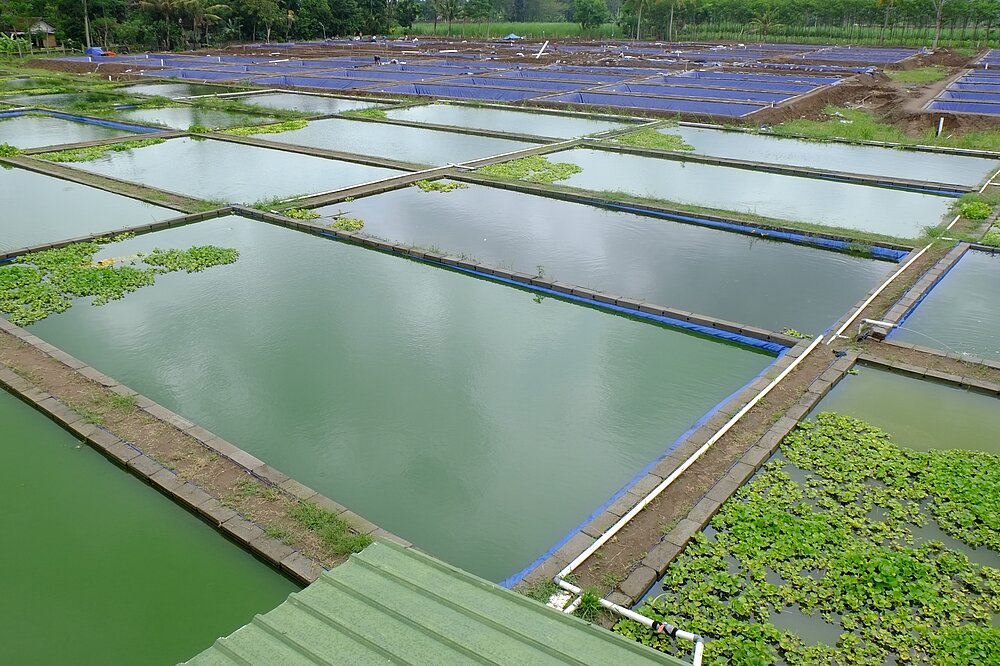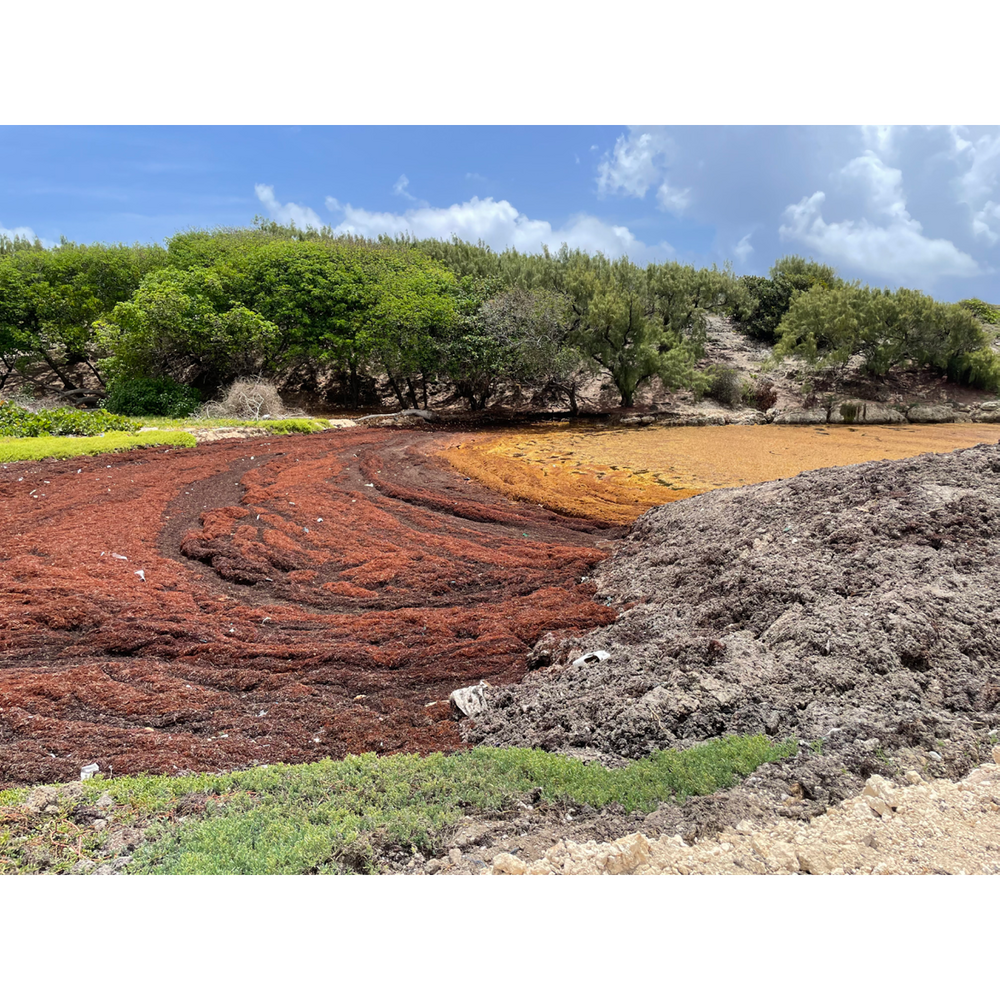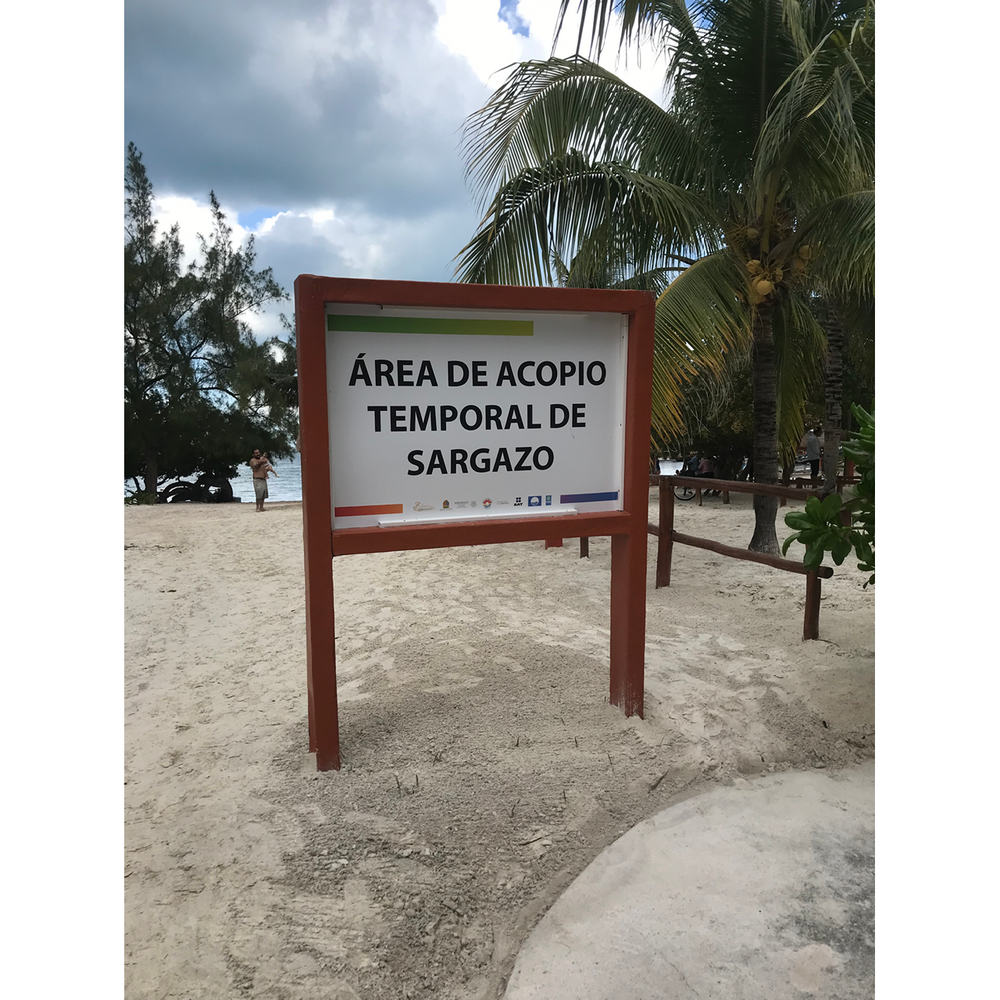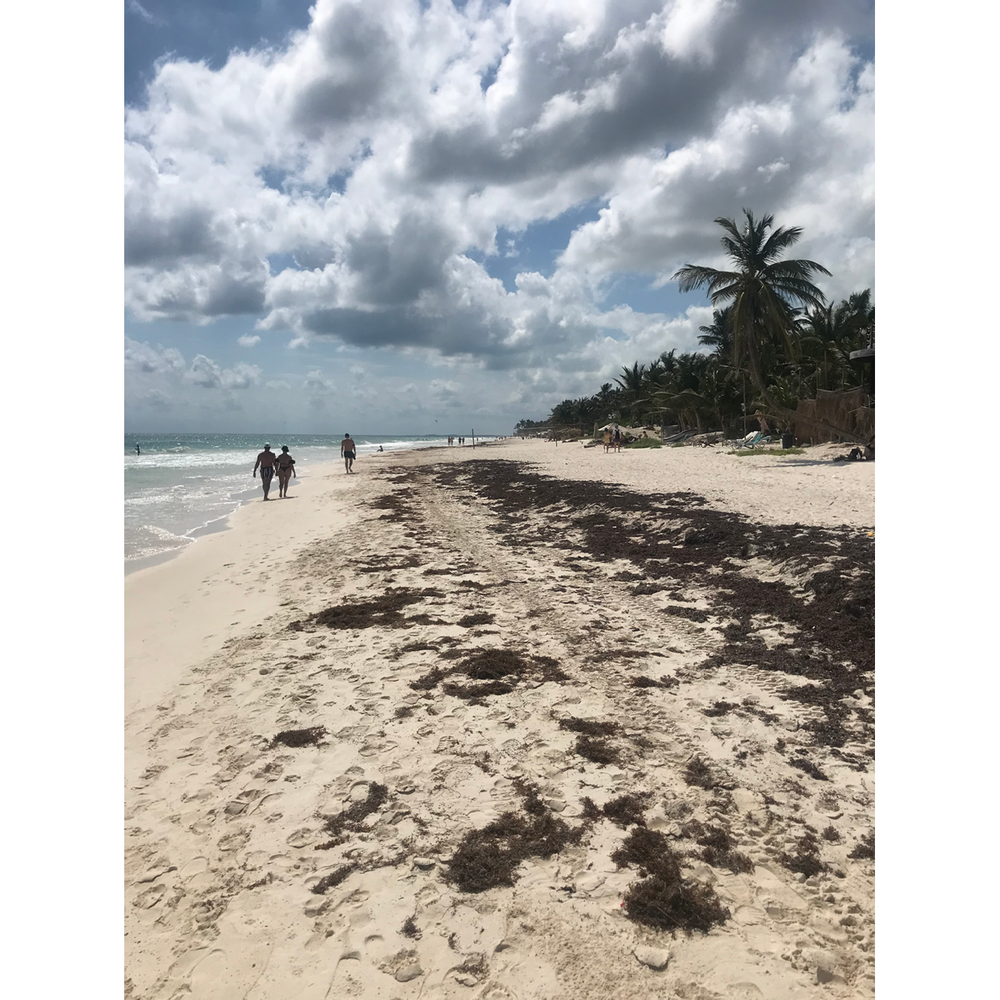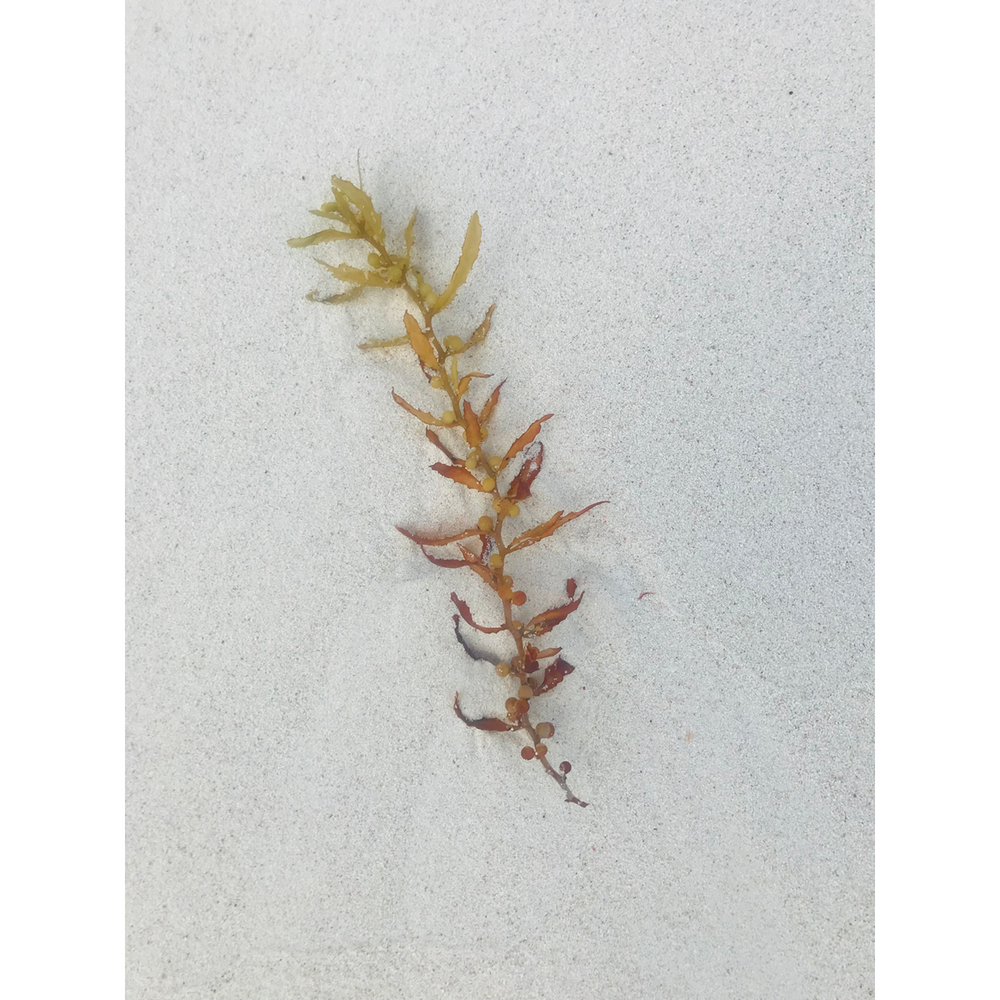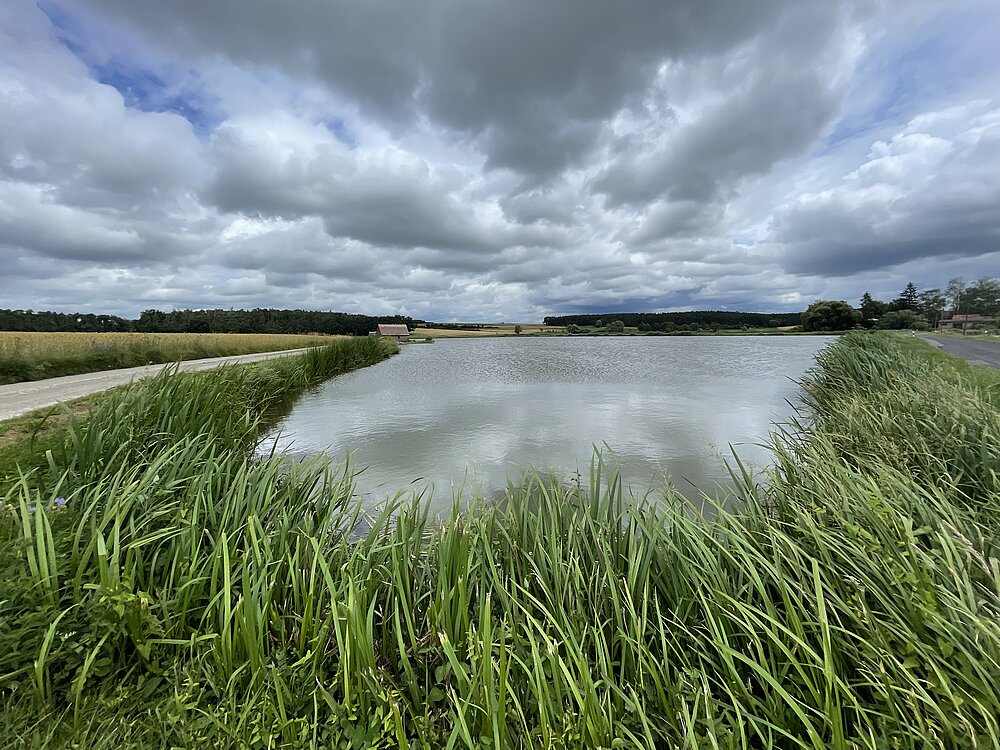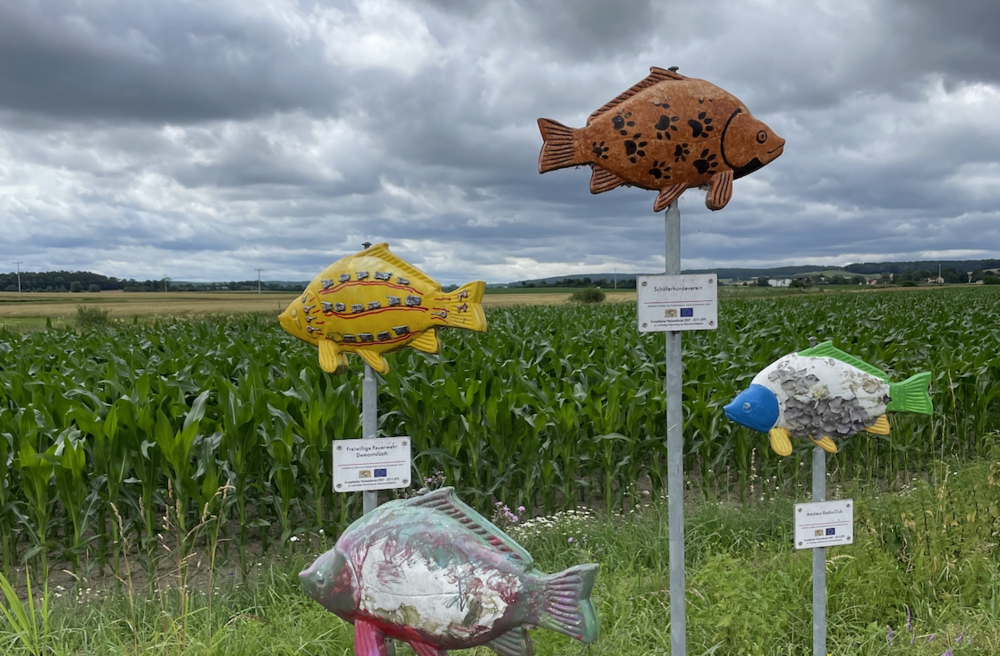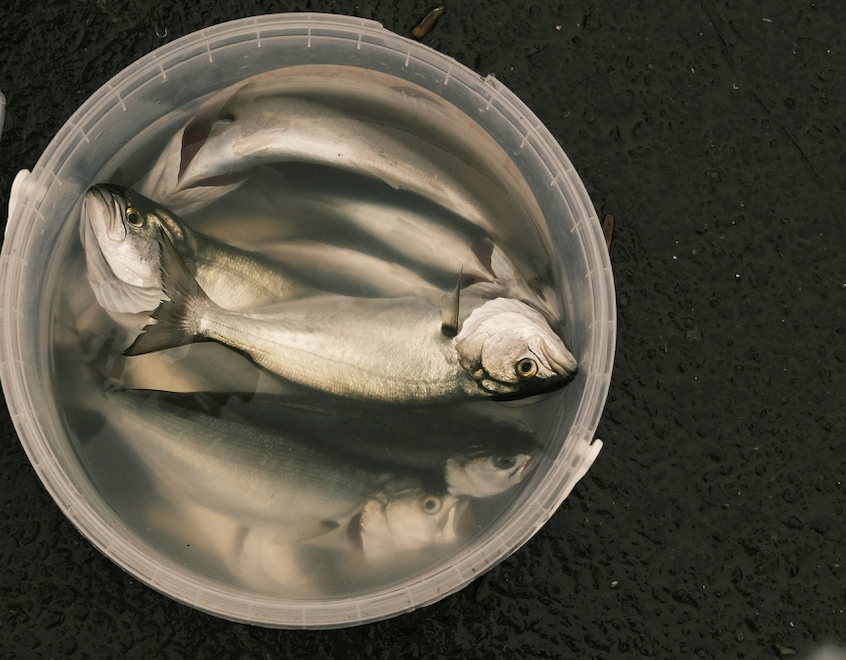Jun.-Prof. Dr. Laura Otto
- Rural spaces and economies
- Environmental and Climate Anthropology
- Multi-Species Ethnography
- Forced Migration and Refugee Studies
since October 2023: Junior Professorship “Anthropology of the Rural”, Chair of European Ethnology, Julius-Maximilians-Universität of Würzburg
2021–2023: Principal Investigator, Goethe University Frankfurt, Institute for Cultural Anthropology and European Ethnology, DFG-funded project: Making Algae (In)Visible
May 2023: Guest Researcher, University of the West Indies, Barbados
May 2022 & November 2022: Christian-Albrechts-Universität zu Kiel, Institute for Human Geography, AG Social Dynamics in Coastal Zones
2019-2021: Post-Doctoral Researcher, Institute for Cultural Anthropology and European Ethnology, Goethe University Frankfurt am Main
2015–2020: Doctoral candidate, University of Bremen Institute for Ethnology and Cultural Studies, Thesis: Unaccompanied, underaged, refugee?! Fixations, ambivalences, and negotiations of ‘adult minors’ in the EUropean border regime in Malta, Summa cum laude
- Augsburger Wissenschaftspreis für interkulturelle Studien 2021
- Certificate for Teaching awarded in 2020 by IKH Goethe University
- Deutscher Studienpreis, finalist 2020
- Fellowship of the Konrad-Adenauer-Stiftung, 2016–2019
- Deutschlandstipendium, 2011–2013
- Bremer Studienpreis, award for the best Master thesis at the University of Bremen
- 2016 Zonta Young Women in Public Affairs Award
- 2008 Research Grant by Freunde und Förderer
- Goethe University Research Grant by Fokus A|B
- Goethe University Publishing Grant
- Martha Muchow Stiftung Publishing Grant
- Deutscher Akademikerinnen Bund
- Kommissionssprecherin Kulturanalyse des Ländlichen, mit JProf. Barbara Wittmann: https://landkultur.blogspot.com/
- Deutsche Gesellschaft für Sozial- und Kulturanthropologie e.V. (DGSKA)
- Deutsche Gesellschaft für Empirische Kulturwissenschaften e.V. (DGEKW)
- Internationale Gesellschaft für Ethnologie und Folklore (SIEF)
- Graduiertenkolleg 2589 "Practicing Place", gefördert durch DFG, Katholische Universität Eichstätt-Ingolstadt, since May 2021
- Johanna Quandt Young Academy, Cohort "Networks. Connectivities. Flows", since April 2022
Organized symposia, workshops and panels (selected list)
Marine STSing Reading Group, head and organizer since 2022
Anthropocenic realities, relations, and subjectivities: Negotiating responsibility, justice and governance in times of climate vigilance | Workshop | Deutsche Gesellschaft für Sozial- und Kulturanthropologie DGSKA | Bremen | October 2021 | with Silja Klepp and Catherine Whittaker
Governance, deliberations and conflicts in and of a more-than-human-world | Lecture Series | Institute for Cultural Anthropology and European Ethnology | Goethe University| 2021
Responsibility in a more-than-human anthropogenic world: conceptions, negotiations and anticipations | Panel | ASA 2021 | March 2021 | with Kathrin Eitel
Ethnografieren von und mit Digitalen / Daten / Infrastrukturen | Lecture Series | Institute for Cultural Anthropology and European Ethnology | Goethe University | 2021/22 | with Martina Klausner
Forschen und Arbeiten zwischen Handlungsdruck und Orientierungsunsicherheit im Kontext von Flucht_Migration | Panel | Netzwerk Fluchtforschung | with Margrit Kaufmann, Sarah Nimführ and Dominik Schütte | Cologne | September 2020
Interventions with, through and in ethnography | Panel | EASST/4S | Prague | August 2020 | with Martina Klausner
Invited talks and keynote lectures (selection)
EASST/4S, “From trash to treasure – and back? Perceptions, politics, and pragmatism in Sargassum algae management in the Caribbean” with Ramona Haegele, Amsterdam, Netherlands, July 2024
EASST/4S, “Follow the float in murky waters: marine carbon observations and their geo-political embeddedness as technoscientific intra-actions” with Ramona Haegele, Amsterdam, Netherlands, 2024
EASA, “Rooted Resilience? Caring for Seagrasses in Mexico” with Ramona Haegele, Barcelona, Spain, 2024
Re-Shaping Coast-Reef-Relations: Sargasso Algae and the Riviera Maya in Mexico | Graduiertenkolleg 259 Practicing Place University Eichstätt-Ingolstadt | October 2021
Auf wessen Seite stehst du? Soziale Beziehungen zwischen Konflikt und Kontakt in einer Unterkunft für junge Geflüchtete | Internationales Symposium „Soziale Beziehungen ‚nach der Flucht‘. Junge Geflüchtete als (Mit-)Gestalter*innen der postmigrantischen Gesellschaft“ |Universität Zürich| October 2021
(Un-)Eindeutigkeiten der Klassifizierung junger Geflüchteter: Ethnographisch arbeiten im kategorialen Dazwischen | Kindheit und Adoleszenz in Bewegung | Universität Zürich | November 2020
Negotiations at sea, negotiating the sea: Young refugees’ perspectives on sea rescue in the Mediterranean | Multilateraler Dialog KAS | Thessaloniki | October 2020
Methodologische Herausforderungen in der Forschung mit jungen Geflüchteten: Material 'knacken' mittels Deutungswerkstatt | Workshop Ethnografie im Kontext von Flucht und Migration | Universität Zürich | September 2020
Coming of age in the border regime: The end of vulnerability? | Amsterdam Centre for European Studies | University of Amsterdam | Amsterdam | May 2019
Übermäßig handlungsfähig, besonders hilflos – beides oder nichts? Überlegungen zum Umgang mit Agency und Vulnerabilität in Forschung mit jungen Geflüchteten | Universität Zürich | November 2018
Contested age: Young refugees between regulation, autonomy and vulnerability in Malta | Deutsche Gesellschaft für Erziehungswissenschaft Conference | Universität Zürich | März 2018
Custody or long-term development? Young refugees between children’s rights and asylum restrictions in the EU | Global Multi-Cultural Human Rights Forum | Suwon, Korea | December 2017
“They tell us that we are minors, but they don’t make a difference between us and adults” – Negotiations of help and vulnerability in Malta | Navigating Shifting Social Terrains: Ethnographic Perspectives on Unaccompanied Young Asylum Seekers in Europe | Universität Bern | June 2017
2024
Artikel, peer reviewed
Otto, Laura/ Bogusz, T./ Hägele, R.. Doing Marine Worlds: Marine STSing through Germany and Beyond, EASST Review, 43 (1).
Otto, Laura/ Carly Rospert. Algae Openings. How the Bloom Boom in the United States and Mexico makes Environmental Protection Actionable In: Nature and Culture Volume 19 Issue 2
Otto, Laura. Working seagrasses: emerging coastal ethics in the Mexican Caribbean. Maritime Studies, Volume 23, article number 12
2023
Journal articles, peer reviewed
Otto, Laura. Whose beach paradise? Tourism and the governance of Sargassum algae along Mexico’s Caribbean coast. Cultural Analysis, Volume 21.2
McAdam-Otto, Laura. Vulnerability-making at Europe’s edge: How policies, documents and spatiality intra-act in the context of young refugees. Journal of Contemporary Ethnography | in press
Book chapters
McAdam-Otto, Laura/Andreas Streinzer/Kathrin Eitel & Ruzana Liburkina. Praktiken und Prozesse der Responsibilisierung. Verantwortung aus kultur- und sozialanthropologischer Perspektive am Beispiel von Abfall, Flucht und Klimawandel. | in press
McAdam-Otto, Laura. Unbegleitete, minderjährige Flüchtlinge. In: Glorius, Birgit, Tabea Scharrer, Olaf Kleist & Marcel Berlinghoff (eds.), Handbuch Flucht- und Flüchtlingsforschung. Nomos Verlag | in press
McAdam-Otto, Laura & Michaela Fenske. Multi Spezies Ethnografie. In: Eitel, Kathrin. Umweltanthropologie. Wiesbaden: Springer | in press
McAdam-Otto, Laura & Margrit E. Kaufmann. Gemeinsam forschen und (nicht) schreiben. Herausforderungen beim kollaborativen Arbeiten mit flucht_migrierten Forschungspartner*innen. In: Nimführ, Sarah & Martina Blank (eds.): Kollaborativ Forschen und Schreiben. Bielefeld: Transcript | in press
2022
Journal articles, peer reviewed
McAdam-Otto, Laura. „It’s all about the beaches.” Sargassum algae, tourism and coastal transformations along the Mexican Caribbean. Coastal Studies & Society. https://doi.org/10.1177/26349817221132379
McAdam-Otto, Laura & Felix Hoffmann. Towards a post-autonomy of migration: (Young) refugees between belligerent and peaceful agency. Migration Letters 19(6). https://doi.org/10.33182/ml.v19i6.2214
Book chapters, peer reviewed
Otto, Laura. 2022. Children, adults or both? Negotiating adult minors and best interest in a state care facility in Malta. Reprint in: Lems, Annika, Sabine Strasser & Kathrin Oester (eds.): Children of the crisis. Ethnographic perspectives on unaccompanied refugee youth in and en route to Europe. London: Routledge.
2021
Journal articles, peer reviewed
McAdam-Otto, Laura & Sarah Nimführ. Being there while not being there. Reflections on multi-sited ethnography and field access in the context of forced migration. Anthropological Journal of European Cultures 30(2), 41–61.
Nimführ, Sarah & Laura Otto. (Un-)Making smallness: Islands, spatial ascription processes, and (im)mobility | Island Studies Journal | online first: https://islandstudies.ca/sites/default/files/ISJNimfuhrOttoSmallnessIslandsMobility.pdf
Otto, Laura & Anna Wanka. Under Construction – Zum Umbau von Praxisarchitekturen des Lehrens und Lernens in pandemischen Zeiten. Zeitschrift für Hochschulentwicklung ZfHE 16(3), 67–82.
Otto, Laura & Margrit E. Kaufmann. Adoleszente Weiblichkeit im Grenzregime: Fremd- und Selbstpositionierungen junger aus Somalia geflüchteter Frauen* auf Malta | GiSO Zeitschrift für Sozialisationsforschung 2(1). doi: 10.26043/GISo.2021.1.2
Book chapters
Otto, Laura & Nicole Philipp-Jahnke. 2021. Wenn eine Pandemie interveniert. Überlegungen zur ethnographischen Praxis seit COVID-19. In: Eitel, Kathrin, Laura Otto, Martina Klausner & Gisela Welz (eds.). Interventions with/in ethnography. Experiments, collaborations, epistemic effects. Kulturanthropologie Notizen 83, 58–72. doi: https://doi.org/10.21248/ka-notizen.83.7
Otto, Laura, Martina Klausner, Kathrin Eitel & Gisela Welz. 2021. Doing interventions. Experiments and Collaborations in Contemporary Ethnography | In: Eitel, Kathrin, Laura Otto, Martina Klausner & Gisela Welz (eds.). Interventions with/in ethnography. Experiments, collaborations, epistemic effects. Kulturanthropologie Notizen 83, 2–13. doi: https://doi.org/10.21248/ka-notizen.83.8
Anthologies
Eitel, Kathrin, Laura Otto, Martina Klausner & Gisela Welz. 2021. Interventions with/in ethnography. Experiments, collaborations, epistemic effects. Kulturanthropologie Notizen 83. doi: 10.21248/ka-notizen.83.8
2020
Journal articles, peer reviewed
Otto, Laura. Children, adults or both? Negotiating adult minors and best interest in a state care facility in Malta. Journal of Ethnic & Migration Studies 46(2), 372–388.
Otto, Laura. Coming of Age in the Border Regime: The End of Vulnerability? Migration Letters, 17(3): 425–432.
Liburkina, Ruzana & Laura Otto. Landwirtschaft, Lebensmittel, Lieferkette in der Krise: Verantwortung situieren. Zeitschrift für Wirtschafts- und Unternehmensethik 21(3), 227–238.
Otto, Laura & Kaufmann, Margrit E. When generalized assumptions of young refugees don’t hold. Rethinking ascriptions and subjectivations through an intersectional lens. Journal of Ethnic & Cultural Diversity in Social Work 29(1–3), 136–153.
Nimführ, Sarah & Laura Otto. Doing Research on, with and about the Island: Reflections on Islandscape. Island Studies Journal 15(1). E.pub. ahead of print.
Chase, Elaine, Laura Otto, Milena Belloni, Annika Lems & Ulrika Wernesjö. Methodological innovations, reflections and dilemmas: the hidden sides of research with migrant young people classified as unaccompanied minors. Journal of Ethnic & Migration Studies 46(2), 457–437.
McAdam, Mark & Laura Otto. Ideas under construction: Views on migration from the European southern external border | Political Studies | online first: https:/<<</doi.org/10.1177/0032321720966464
Otto, Laura, Sarah Nimführ & Patrick Bieler. Preserving Maltese identity in refugee management. Shima: The International Journal of Research into Island Cultures 13(2), 135–154.
Monographs
Otto, Laura. 2020. Junge Geflüchtete an der Grenze. Eine Ethnografie zu Altersaushandlungen. Frankfurt/New York: Campus Verlag
Vor 2020
Journal articles, peer reviewed
Otto, Laura & Margrit E. Kaufmann. 2018. ‚Minderjährig’, ‚männlich’, ‚stark’? – Komplexe Bedeutungsaushandlungen der Selbst- und Fremdzuschreibung junger Geflüchteter in Malta. Eine intersektionelle Leseweise ethnographischer Forschungsausschnitte. GENDER 2, 63–78.
Nimführ, Sarah, Laura Otto & Gabriel Samateh. 2017. Gerettet, aber nicht angekommen. Von Geflüchteten in Malta. In: Hess, Sabine, Bernd Kasparek, Stefanie Kron, Mathias Rodatz, Maria Schwertl & Simon Sontowski (Hrsg.): Grenzregime III. Der lange Sommer der Migration. Hamburg: Assoziation A, 137–150.
Otto, Laura. 2016. Ethnographic insights into the age assessment for young migrants in Malta. Transnational Social Review 6(1–2), 187–191.
Book chapters, peer reviewed
Nimführ, Sarah, Laura Otto & Gabriel Samateh. 2019. Denying, While Demanding Integration: An Analysis of the Integration Paradox in Malta and Refugees’ Coping Strategies. In: Schweitzer, Reinhard & Sophie Hinger (eds.): Politics of (Dis)Integration. IMISCOE Research Series. VS, 161–181.
Nimführ, Sarah, Laura Otto & Gabriel Samateh. 2017. Gerettet, aber nicht angekommen. Von Geflüchteten in Malta. In: Hess, Sabine, Bernd Kasparek, Stefanie Kron, Mathias Rodatz, Maria Schwertl & Simon Sontowski (Hrsg.): Grenzregime III. Der lange Sommer der Migration. Hamburg: Assoziation A, 137–150.
Book chapters
Otto, Laura & Sarah Nimführ. 2019. Ethnografisch forschen und die Wirkmächtigkeit der Kleinheit. Methodentheoretische Überlegungen und empirische Einblicke zur Produktion, Wahrnehmung und Repräsentation von räumlichen Zuschreibungsdiskursen. In: Kaufmann, Margrit E., Laura Otto, Sarah Nimführ & Dominik Schütte (eds.): Forschen und Arbeiten im Kontext von Flucht. Reflexionslücken, Repräsentations- und Ethikfragen. Wiesbaden: Springer, 69–93.
Ali, Sanaa Wajid & Laura Otto. 2019. Iraqi Refugees and Asylum Seekers between Settlement and Return. Hopes, Frustrations, and Dreams. In: Kaufmann, Margrit E., Laura Otto, Sarah Nimführ & Dominik Schütte (Hrsg.): Forschen und Arbeiten im Kontext von Flucht. Reflexionslücken, Repräsentations- und Ethikfragen. Wiesbaden: Springer, 121–142.
Kaufmann, Margrit E., Laura Otto, Sarah Nimführ & Dominik Schütte. 2019. Forschung und Praxis zwischen Handlungsdruck und Orientierungsunsicherheit im Kontext von Flucht_Migration. In: Dieselben (eds.): Forschen und Arbeiten im Kontext von Flucht. Reflexionslücken, Repräsentations- und Ethikfragen. Wiesbaden: Springer, 1–17.
Anthologies
Kaufmann, Margrit E., Laura Otto, Sarah Nimführ & Dominik Schütte, Dominik. 2019. Forschen und Arbeiten im Kontext von Flucht. Reflexionslücken, Repräsentations- und Ethikfragen. Wiesbaden: Springer.
Junior professorship “Anthropology of the Rural”
The junior professorship “Anthropology of the Rural” will be filled by Dr Laura Otto from the winter semester 2023/2024. The holder of the position will develop the “Anthropology of the Rural” in Würzburg against the background of her research focus on climate change, human-nature relationships, multispecies studies, the commodification of nature and regulatory practices of water bodies. Particular attention is paid to not only the ‘waters of the many’, such as lakes and ponds, but also aquaponics systems. The research project “AquaNaturenKulturen” explores how rurality is produced in and with still waters in times of anthropogenic climate change. By focusing on still waters and practices of production with and in them, the project not only brings them to the attention of European ethnology/empirical cultural analysis, but also expands the research field of the ‘Blue Humanities’: after all, it is precisely the often underestimated still waters that, along with oceans and rivers, play an important role in the everyday lives of humans and other species.
The junior professorship “Anthropology of the Rural” is dedicated to the study of rurality from a cultural and social science perspective, both in the past and present. The professorship, which is unique in the German research landscape, combines questions about rural living and working conditions. It asks how rural spaces are experienced, lived and (re)formed. It examines agricultural practices and human-environment relationships. The aim of the junior professorship is not to define ‘the rural’ geographically, but to show how and where ‘rurality’ is produced, for example, through labour migration, food production and chains. This approach makes it possible to explore the heterogeneous and ever-changing expectations of rurality, as well as conflicts and transformations in rural areas. With its open view of rurality, the junior professorship is broadly applicable to interdisciplinary dialogues with neighbouring disciplines, such as geography, literature and history or sociology. By integrating multispecies approaches, the professorship offers numerous opportunities for collaboration with agricultural, forestry and other natural sciences as well as applied sciences.
DFG-Project: Making Algae (In-)Visible: Tourism, Responsibility and Governance in the Caribbean
While microplastics, industrial waste entering the ocean and overfishing are the most common anthropogenic threats to the ecological integrity of the oceans, much less attention has been paid to a more recent development: harmful algae that threaten both oceans and coasts. These algae cause erosion of beaches, prevent photosynthesis of corals and seagrasses and lead to long-term changes in the water and on land. The frequency of their occurrence, their volume and the areas in which they spread are increasing. This phenomenon can currently be observed particularly well in several Caribbean countries in Central and Latin America, where Sargassum algae have been washed ashore in atypical high quantities in recent years. The algae threaten local tourism, the ecosystem and human health. Sargassum algae and emerging practices of dealing with them are the central focus of the research project. The project, which runs until 2025, locates the phenomenon along the Caribbean coasts of Mexico and Barbados, where the “algae problem” is most prominent. In this context of anthropogenic environmental change, questions of responsibility and governance will be answered on the basis of ethnographic field research.
The project addresses the following research questions: How is anthropogenic environmental change dealt with along the Caribbean coast? How are commodification, responsibility-making and (in-)formal governance negotiated with and through anthropogenic environmental change in the everyday life of the actors along touristified coastal zones? Methodologically, the project is based on ethnographic field work and is designed as a multi-sited, multi-actor and multi-species study. The project is situated at the nexus of cultural studies, cultural anthropology and within the “naturecultures” debate, with the analytical-theoretical concepts of commodification, responsibility and governance playing a central role.
Learn more:
- Otto, Laura (2021-2025): Algae Ambivalences
- Otto, Laura (2024): Working seagrasses: emerging coastal ethics in the Mexican Caribbean.
- Otto, Laura (2023): Whose beach paradise? Tourism and the governance of Sargassum algae along Mexico’s Caribbean coast.
- McAdam-Otto, Laura (2022): It’s all about the beaches. Sargassum algae, tourism, and coastal transformations along the Mexican Caribbean
Emmy Noether Goup: AquaNaturesCultures – Still Water Economies in the Anthropocene
Still waters run deep. The expression usually refers to the idea that calm people are filled with significant depth and complexity. Still waters, however, give this saying a literal meaning. Beneath their surface lies a world that is often perceived as unexciting. But those who take a closer look will realize how important still waters are for life on earth. This includes their value as habitats, as sources of food, and diverse economic opportunities. The research project explores still waters at this nexus and develops, by systematically conceptualizing these as AquaNaturesCultures, an anthropological understanding of agricultural economies that operate with and in still waters in the Anthropocene. In so doing, the project pays attention to bodies of water which have vastly been neglected in anthropology. It combines the anthropology of the rural, anthropology of waters, NaturesCultures and multi-species approaches. Four ethnographic sub-projects in rural Bavaria (Germany) – the country’s front-runner in still water economies – examine long-standing still water economies (pond farming and lake fishing) and newer industries (aquaponics and algae farming).
Members of the group will analyze knowledge transmission and production, multi-species collaborations and conflicts, and the future of agriculture. The project’s insights on resilient agriculture, species conservation, and sustainable food production hold significant value for anthropology, related disciplines, and practitioners. The project offers important insights into the critical question: What is the future of agriculture, and, not least, life on earth?







